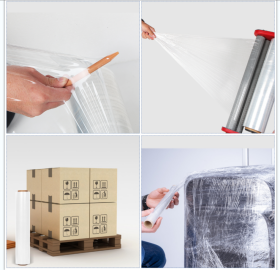polybag biodegradable
The Importance of Biodegradable Polybags in Today's Environmental Landscape
In recent years, the focus on environmental sustainability has increasingly spotlighted the impact of plastic waste on our planet. Among various plastic products, polybags—often used for shopping and packaging—have come under scrutiny due to their significant contribution to pollution. However, the emergence of biodegradable polybags presents a promising solution to tackle this pressing issue. This article explores the significance of biodegradable polybags, their advantages, and the role they play in fostering a sustainable future.
Understanding Biodegradable Polybags
Biodegradable polybags are designed to break down over time through the action of living organisms, primarily microorganisms. Unlike traditional plastic bags, which can take hundreds of years to decompose, biodegradable alternatives typically decompose within a few months to a few years, depending on environmental conditions. These bags are often made from natural materials such as starch, PLA (polylactic acid), or other renewable resources, making them a more eco-friendly option.
The Environmental Advantages of Biodegradable Polybags
1. Reduction of Plastic Pollution One of the most significant benefits of biodegradable polybags is their potential to reduce plastic pollution. Conventional plastic bags are notorious for littering landscapes, clogging waterways, and harming wildlife. Biodegradable alternatives can significantly decrease the volume of plastic waste, leading to cleaner streets, oceans, and ecosystems.
2. Lower Carbon Footprint Production processes for biodegradable bags typically generate lower greenhouse gas emissions compared to traditional plastics. This reduction in carbon output is crucial in the battle against climate change, as every step toward sustainability contributes to a healthier planet.
3. Soil Enrichment When biodegradable polybags decompose, they can enrich soil rather than detracting from it. The organic matter that results from biodegradation can improve soil health by providing nutrients and enhancing its structure. This characteristic is particularly beneficial in agricultural contexts, where healthy soil is essential for robust crop production.
polybag biodegradable

4. Support for Renewable Resources Many biodegradable polybags are made from renewable resources, such as plants. This shift from fossil fuel-based plastics not only helps to decrease our reliance on non-renewable resources but also supports industries that utilize sustainable agricultural practices.
Challenges and Considerations
While the benefits of biodegradable polybags are promising, there are still challenges to overcome. One significant issue is the availability of proper industrial composting facilities. In many regions, the infrastructure for recycling and composting biodegradable materials is lacking, leading to the possibility that these bags may still end up in landfills where they may not decompose effectively.
Additionally, consumer awareness and education are crucial for the successful adoption of biodegradable polybags. Many consumers remain uninformed about the differences between biodegradable and traditional plastic, potentially leading to improper disposal practices. Public awareness campaigns are essential in encouraging responsible usage and disposal of biodegradable products.
The Role of Businesses and Policy
To catalyze the transition toward biodegradable polybags, businesses must take the initiative to incorporate these eco-friendly options into their operations. Retailers can lead the way by offering biodegradable bags at point-of-sale or as a standard part of their packaging strategy. Furthermore, local governments and policymakers should support this transition by implementing regulations that encourage the use of biodegradable materials and developing a robust recycling and composting infrastructure.
Conclusion
The shift toward biodegradable polybags represents a critical step in addressing the environmental challenges posed by plastic waste. As we move forward into an era focused on sustainability, it is imperative that individuals, businesses, and governments unite in promoting and adopting biodegradable alternatives. By reducing plastic pollution, lowering carbon emissions, and fostering a healthier ecosystem, biodegradable polybags have the potential to make a significant positive impact on our planet’s future. It is our collective responsibility to embrace these changes and work towards a sustainable lifestyle that protects our environment for generations to come.
-
The Best Uses for Small Trash Bags in Daily LifeNewsJul.01,2025
-
Stylish Reusable Grocery Bags TrendsNewsJul.01,2025
-
Shipping Advantages of Using Bubble Envelopes BulkNewsJul.01,2025
-
How Compostable Mailing Bags Reduce Environmental ImpactNewsJul.01,2025
-
Environmentally - Friendly Bulk Poly MailersNewsJul.01,2025
-
Eco Friendly Custom Laminated Tote BagsNewsJul.01,2025
-
Have the freedom of customizing your custom mailers any way you want! Our dedicated packaging support will help deliver you the mailing experience you need to elevate your shipping experience to the next level! Start making a strong impression on your customers and stand out from your competitors! -
LIYA uses high quality raw materials which directly purchased from large enterprises domestic and overseas such as PetroChina, Sinopec, Sabic, Equate, ExxonMobil, Dow Chemical, Total, and Borouge, ensuring the price advantage and quality of the raw materials. -
LIYA uses high quality raw materials which directly purchased from large enterprises domestic and overseas such as PetroChina, Sinopec, Sabic, Equate, ExxonMobil, Dow Chemical, Total, and Borouge, ensuring the price advantage and quality of the raw materials.





